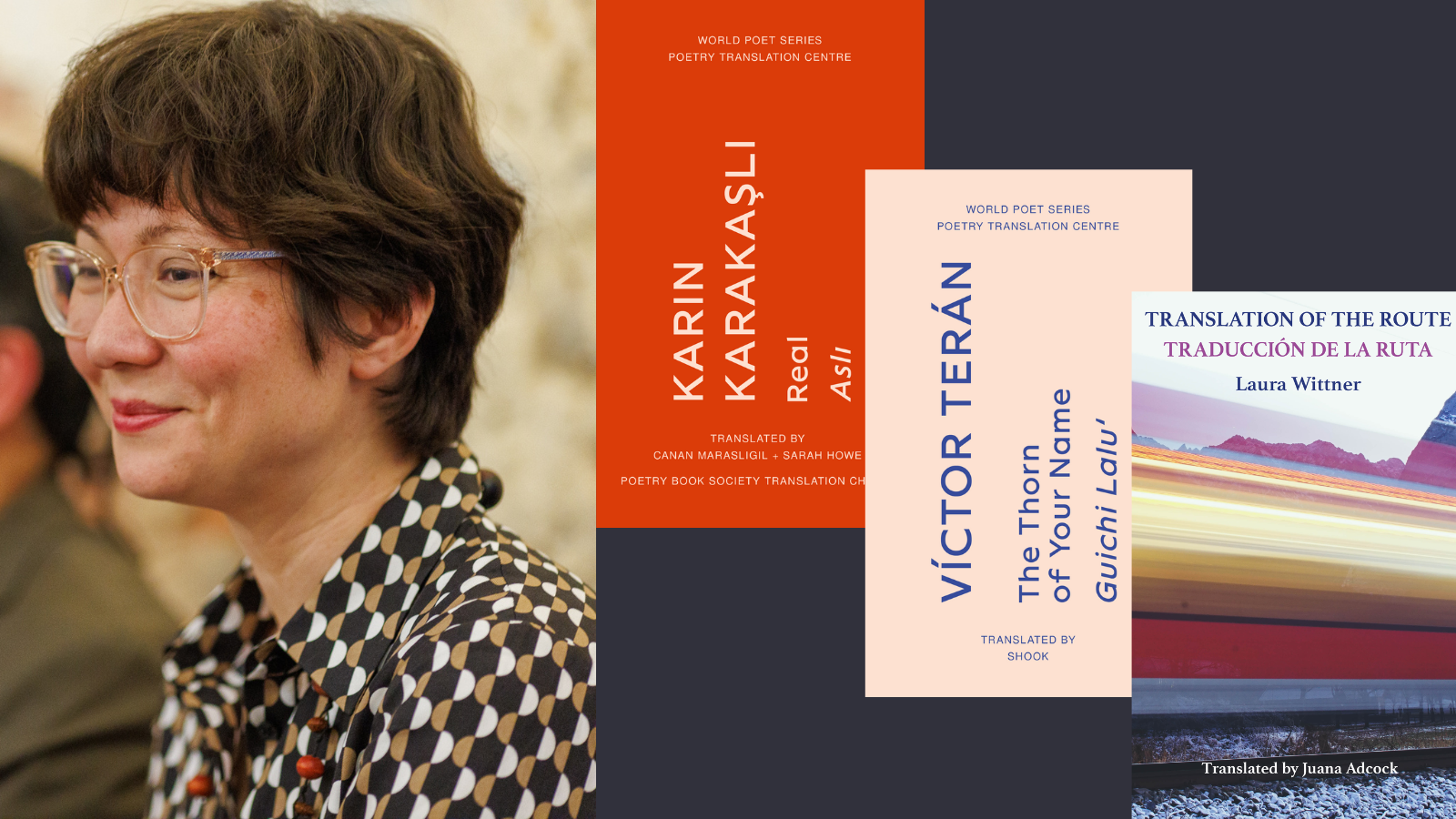The PTC’s Erica Hesketh reflects on three approaches to translating poetry as she prepares to step down as Director and Editor.
In July I’ll be stepping down from my role as Director of the Poetry Translation Centre. In the past eight years I’ve learned so much, from my talented staff team, whose commitment to internationalism, representation and the value of poetry translation is second to none, and from the amazing (in some cases legendary) poets and translators I have had the privilege to work with on PTC publications and tours.
In the past eight years the anglophone literary world has started to engage more directly and openly with the ethics and politics of translation – who gets to do it, how it ought to be done, who holds the power, etc. It feels like literary translators are more visible than ever before, and more vocal about their position as artists and advocates, which is brilliant to see. During my time at the PTC I’ve witnessed, and discussed, many different and evolving approaches to translation, and I really appreciate the conversations I’ve been part of with people who are wiser and more experienced than me.
After eight years, I actually feel more open-minded about how translation might be achieved than when I first joined the PTC. As editor of the PTC’s books I’ve gained some insights into what makes a ‘successful’ poem translation, when you really get down to it: the quality of the rapport between the poet and translator(s); mutual trust and professional respect between everyone involved; deep understanding of the original poetry, its context and language; deep understanding of how poetry works in the target language and context; and clarity of process. I think these are the things that are essential, whether it’s a solo translation, a collaboration, a workshop translation or any other mode. I have been moved, time and time again, by the desire of translators and poets to make translation happen, despite technical, cultural or political obstacles.
Armenian-Turkish poet Karin Karakaşlı, whose stunning collection Real is published on 1st May, talks about her work with her co-translators Canan Marasligil and Sarah Howe as a ‘kitchen atmosphere’. I love this metaphor for the three-way working relationship which developed organically between these talented women, and which kickstarted back in 2017 with a previous chapbook and tour. (Canan’s advocacy of Karin’s poetry goes back even further than this.) Canan and Sarah’s creative collaboration, bringing together Canan’s skills as a linguist, translator and language activist and Sarah’s consummate skills as a poet in English with an international perspective, is a great example of how collaborative translation can work fruitfully and beautifully.
On 1st July we will be publishing The Thorn of Your Name by Mexican poet Víctor Terán, in translation from the Isthmus Zapotec by the poet Shook. This book is fantastic, and a fascinating example of bridge-language translation. Like many minority-language poets, Víctor has been forced to translate his own poems from Zapotec to Spanish, due to the lack of literary translators from his language. Shook, who is a fluent Spanish speaker, prepares their English translations from Víctor’s Spanish versions, asking many questions along the way about the original Zapotec poems. The two poets have worked together in this way, discussing and sharing, for over 15 years. It is a pleasure and privilege to be publishing the most comprehensive presentation to date of Víctor’s oeuvre in English translation, drawing on his key themes of romantic love and Zapotec land and language.
On 19th September we will publish our final co-publication with Bloodaxe Books, Translation of the Route by the Argentine poet Laura Wittner, translated by the Mexican-Scottish poet and translator Juana Adcock. Rather than a ‘selected poems’, a common approach for international poetry, this book is a complete translation of a collection published in Argentina in 2020, a wonderful book in which Laura explores parental and familial love, life after marriage, and the reignition of the self in middle age. What I’ve most enjoyed about working with Laura and Juana is observing their dynamic as two female Latin American poets who are both also literary translators. I think this shared perspective has led to an extremely attentive, and intentional, translation, the outcome of which is a set of poems that are stunningly poised and luminous. I am very excited for the anglophone world to get to know Laura and her poetry when she visits the UK in October to promote the book.
Three very different collections, brought into English via three different translation methods: a collaborative translation, a bridge-language, poet-to-poet translation, and a solo translation, all truly meaningful and successful. I hope they find their way into the hearts of many anglophone readers, including yours!
Thank you for your support all these years – for me, for our poets and translators, and for the work of the PTC.
Erica Hesketh

